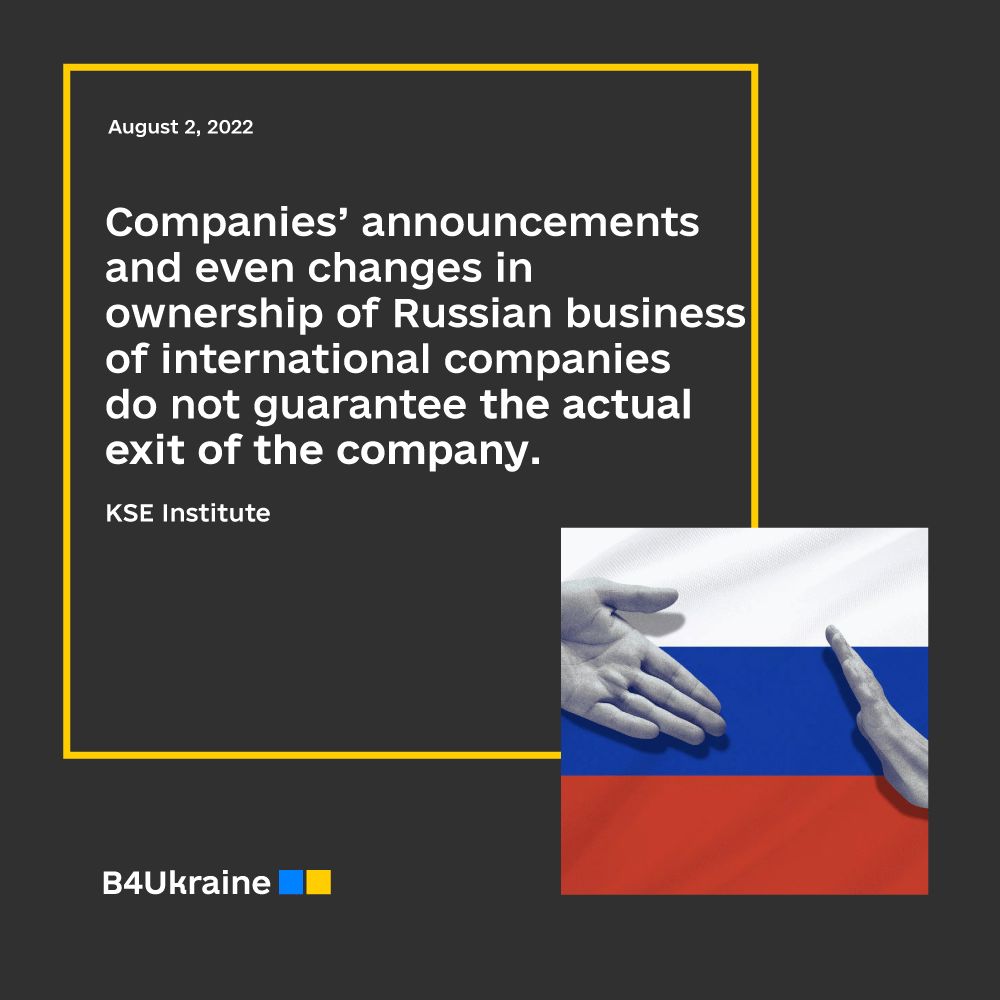
International companies’ announcements and even changes in ownership of their Russian businesses do not guarantee the actual exit of the company, states the KSE Institute. Though some companies claim to have left Russia and their businesses have changed owners as reflected in the Uniform State Register of Legal Entities in Russia, some of these companies are still working in the country.
One of the popular strategies of companies’ exit is to transfer or sell Russian business to local management. Good-looking on paper, the local management buyout can be very misleading in practice.
For example, this deceiving approach was practiced by L’Occitane. In May 2022, the company announced its intention to exit Russia entirely and not supply its products to Russian retailers. In June, it transferred the ownership to local management, and the name of the former L’Occitane shops was transliterated to Cyrillic. Afterward, the shops resumed operations, including selling L’Occitane products.
Another strategy practiced by the companies to remain in Russia without facing reputational damage relies on grey imports. In March 2022, Russia allowed parallel imports of goods. This means that goods can be imported to Russia without the agreement of their producer. There was news that stores started to sell grey imports.
Samsung plant in the Kaluga region was reported to resume work at the beginning of June partially, even though the company claimed to leave Russia. Televisions and household appliances it produces cannot be sold directly in Russia, but they can be exported to CIS countries and re-imported as a parallel import.
These and other various inventive corporate scheming allow some companies to comply with sanctions formally, avoid reputational damage and continue operations in the aggressor country. They prove that we shouldn’t take businesses’ claims at face value. Each claim should be thoroughly investigated and every company engaged in scheming must be held accountable.